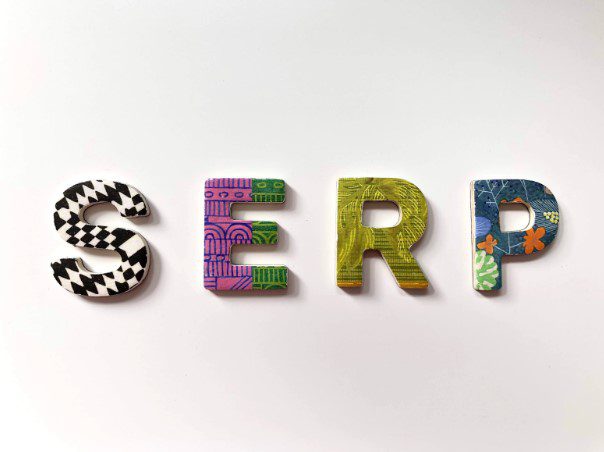A single viral Facebook post, a negative news article, or even one unhappy customer can quickly take over the first page of Google. In the Philippines, where online communities are close-knit and netizens don’t hesitate to speak up, a hit to your reputation doesn’t just spread fast. It lingers.
Crisis SEO is your secret weapon for managing that storm.
To help you regain control and protect your digital reputation when it counts the most, this guide will share proven crisis SEO strategies crafted for the Philippine market.
Let’s dive in!
Why crisis SEO matters in the Philippine context
Imagine a local influencer calling out your customer service, or a news story tying your brand to a controversy. In the Philippines, where social media runs hot, these things spread fast, and platforms like X, Facebook, and TikTok can turn a small issue into a nationwide conversation overnight.
Even worse? These stories often rank high on Google, shaping what people think about your brand long after the headlines fade.
That’s the kind of long-lasting impact crisis SEO tackles head-on.
Step-by-step: Crisis SEO strategies that work
Crisis SEO helps you bury negative or outdated content deep within search results while bringing accurate, positive, or neutral stories to the forefront. It puts you back in control of the narrative and strengthens your digital presence so you’re better equipped for whatever comes next.
Now, let’s break down the practical steps you can take to make that happen. Here’s your step-by-step guide to Crisis SEO strategies that work.
1. Assess the damage on Google
Start by searching your brand name and variations in incognito mode. Try combos like:
- “[Your brand] + scam”
- “[Your brand] + review”
- “[Your brand] + issue”
List all negative or misleading links and note which page they appear on (Page 1, 2, etc.). Focus first on what shows up on Page 1. After all, 75% of users rarely go beyond that.
2. Respond quickly but with care
Respond quickly but thoughtfully by publishing an official statement on your website or blog to ensure Google indexes your side of the story promptly. Focus on staying factual and avoid sounding defensive.
Remember to also incorporate relevant keywords, such as your brand name paired with terms like “official statement,” and use schema markup (Article or NewsArticle) to enhance your content’s visibility in search results. Don’t forget to link back to your homepage and other strong internal pages to strengthen your site’s overall SEO.
3. Flood Google with positive & neutral content
Google favors fresh, authoritative content, so outrank negative links by consistently posting blog updates that answer FAQs, like “5 Ways We’ve Improved Since [Date].” Share insightful thought leadership from your CEO or founder, such as “Why Listening to Customers Matters.”
Don’t forget to keep your “About” page current with new information, develop useful industry guides like “Eco-Friendly Packaging in the Philippines,” and publish press releases both on your website and through media outlets to strengthen your online presence.
4. Connect with media, blogs, and partners
When false or outdated information starts affecting your brand, proactive outreach can make a big difference. Contact media outlets to request corrections or updates on inaccurate news articles, and ask for refreshed backlinks that direct to your most current content.
You can also contribute guest posts to local blogs or industry websites to introduce positive, relevant narratives. These trusted, high-authority sources not only improve your brand’s credibility but also strengthen your position on Google, helping to push down negative content in search results.
5. Harness the power of video SEO
With Filipinos ranking among the top YouTube users globally, video content has become a powerful tool for shaping brand perception. Create explainer videos or updates, and make sure to include your brand name in the titles and descriptions for better visibility.
Enhance each video with chapters, targeted keywords, and useful links to boost its search performance. Since videos often appear prominently in search results, they can be highly effective in pushing down negative text-based content while highlighting your brand’s voice in a more engaging format.
6. Monitor, adjust, repeat
Crisis SEO is a long-term effort, not a quick fix. To stay on top of your brand’s online reputation, use tools like Google Search Console to monitor your search rankings, Ahrefs or SEMrush to track backlinks and keyword performance, and Google Alerts to get real-time notifications of any new mentions. Staying vigilant ensures you can respond and adapt as your digital landscape evolves.
Can you remove negative links from Google?
In some cases, yes, negative links can be removed from Google, but only under specific conditions. If the content violates Google’s policies, such as containing defamation or exposing personal data, or if it’s outdated or no longer relevant, you may be eligible to file a “right to be forgotten” request. However, for most legitimate articles or posts, removal simply isn’t an option. That’s why a smarter, more sustainable approach is to suppress negative content through strategic SEO.
When in crisis, let SEO experts do the work
A crisis doesn’t have to define your brand unless you let it dominate your search results. You can always steer your online reputation back in the right direction by acting quickly, optimizing wisely, and creating high-quality content that matches Filipino consumer behavior.
Remember: In the age of Google, what people see is what they believe. Make sure what they see reflects who you truly are, especially when times are tough. To boost the effort of turning your digital effort around, team up with a highly skilled PR agency. Let the professionals utilize their SEO expertise with effective communication to craft balanced messages, engage local media, and build authentic content that restores trust.
Ready to show the world what your brand truly stands for? Let’s talk!

Irishbeth Relampagos is a writer who specializes in crafting copies across various content formats, mainly SEO blogs and marketing materials. Her passion for translating ideas into impactful content has helped brands connect with their audiences in ways that transcend superficial and transactional interactions.
Irishbeth pursued English Language Studies at Polytechnic University of the Philippines where she honed her skills in writing. While originally focused on writing poems and opinion pieces, she shifted her career path to content writing after a successful stint as an SEO content writer during her internship.


